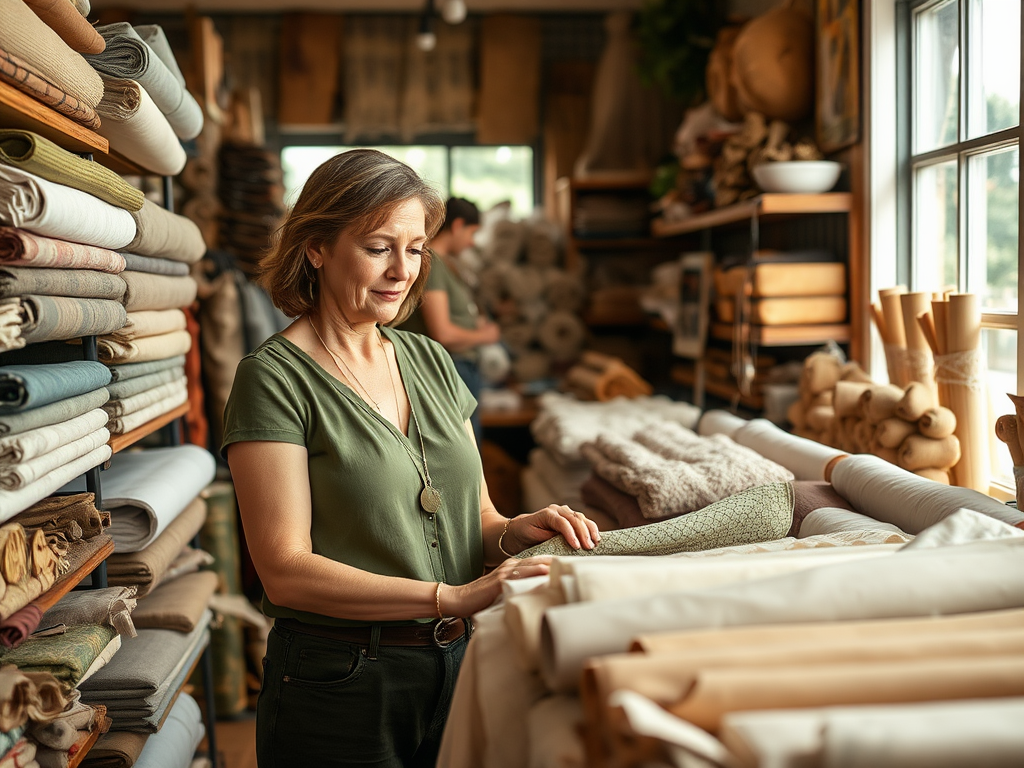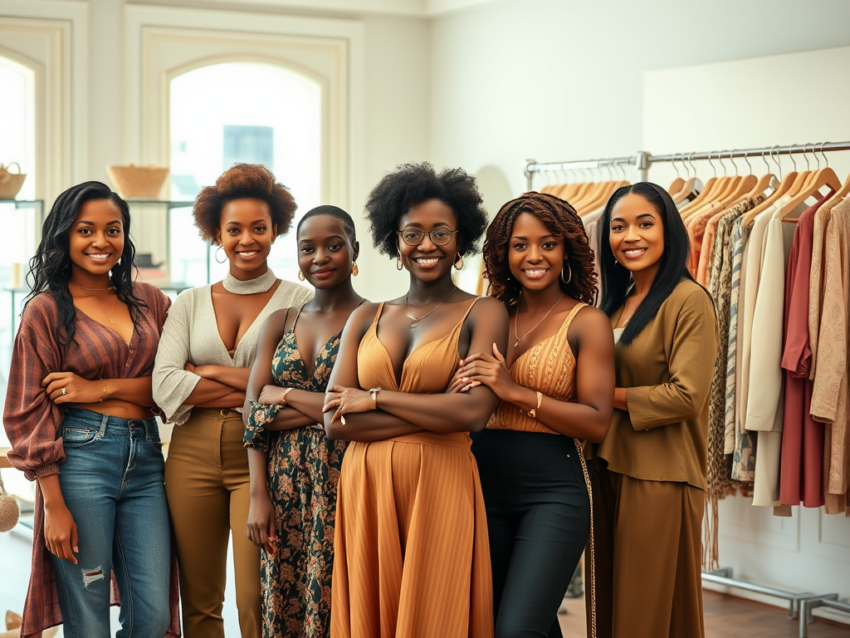In a world increasingly conscious of its environmental and social responsibilities, supporting women-owned clothing brands has become not just a trend but a necessity. These brands not only reflect the creativity and perspective of women entrepreneurs but also pave the way for sustainable practices within the fashion industry. The choices consumers make can either bolster or hinder progress. This article will guide you through the importance of ethical fashion and the positive impact of supporting women-owned clothing brands. Together, we can foster an ecosystem that values not just profit but also people and the planet.
It’s essential to scrutinize the implications behind our fashion choices. The support extended towards women-owned businesses can uplift entire communities, fostering economic growth and gender equality. In this guide, we will explore how to identify these businesses, what makes them ethical, and effective ways to lend your support. By choosing to buy from these brands, you’re contributing to a greater cause that resonates far beyond personal style.
The Importance of Ethical Choices in Fashion

Ethical fashion is rooted in the belief that our clothing should be produced without exploiting workers or harming the planet. This encompasses various aspects, including sustainable materials, fair labor practices, and transparency in sourcing. As consumers, we hold the power to steer the fashion industry towards a more ethical trajectory through our purchasing decisions. When we support brands committed to these principles, we push for systemic change within a traditionally exploitative sector.
Environmental Impact
The environmental toll of clothing production is astounding. From toxic dyes to water-intensive processes, the fashion industry is a significant contributor to pollution and waste. Choosing sustainable brands can lessen this burden and promote better practices. By selecting women-owned labels that prioritize eco-friendly methods, you’re encouraging a shift toward greener alternatives. Their commitment to sustainability often inspires larger companies to follow suit, creating a ripple effect.
Social Responsibility
Social responsibility in fashion encompasses fair wages, safe working conditions, and the empowerment of women in the supply chain. When you buy from women-owned brands, you’re contributing directly to the economic upliftment of other women. These brands often implement ethical labor practices that not only prioritize their workers but also aim to break cycles of poverty. Therefore, supporting them aligns your values with your shopping habits.
How to Identify Women-Owned Clothing Brands

Identifying women-owned brands can be a rewarding endeavor, revealing a wealth of diversity in the fashion landscape. Start by looking for specific certifications and labels that indicate female ownership. Additionally, numerous online resources make it easier to find these brands—many are compiled into comprehensive directories that focus solely on women-owned businesses. Using these tools is essential for informed shopping.
Certifications and Labels
Various certifications and labels signify that a brand is women-owned. They can act as your guide when navigating the market. Some notable ones include:
- WBENC (Women’s Business Enterprise National Council)
- WEConnect International
- Women-Owned Business Seal
Resources and Directories
Several online platforms are dedicated to promoting women-owned businesses. Notable directories include:
- Hive Brands
- Heritage Radio Network
- Buy From Women
Key Characteristics of Ethical Women-Owned Brands
When you’re on the lookout for women-owned clothing brands, certain qualities are essential to ensure that your choices are ethical. Look for brands that prioritize sustainable materials, fair labor practices, and complete transparency. Not only do these brands advocate for the environment, but they also work hard to respect and uplift their workforce.
Sustainable Materials
Brands that focus on using sustainable materials often utilize organic fibers, recycled fabrics, and eco-friendly dyes. Such materials not only reduce environmental damage but also offer durability and quality that can outlast fast-fashion alternatives. Below is a comparison table showcasing the benefits of various sustainable materials:
| Material | Benefits |
|---|---|
| Organic Cotton | Reduces pesticide use and promotes healthier soils. |
| Recycled Polyester | Reuses plastic waste, decreasing landfill overflow. |
| Tencel (Lyocell) | Biodegradable and produced in a closed-loop process. |
Fair Labor Practices
Brands that uphold fair labor practices are transparent about their working conditions. This often translates into a commitment to paying living wages, ensuring safe working environments, and providing support for their employees. Such practices not only uplift the workers but also set a moral standard that encourages other brands to follow suit.
Ways to Support Women-Owned Clothing Brands
Supporting women-owned clothing brands can take many forms, from shopping locally to engaging on social media. One of the best ways to make an impact is to shop at local women-owned boutiques and markets. This not only supports the local economy but allows for a more personal shopping experience. Additionally, engage with these brands on social media platforms by sharing their content, tagging them in your posts, and leaving positive reviews.
Word-of-mouth remains one of the most powerful tools for promoting awareness. Share your experiences with women-owned brands in your social circles. Host events that focus on ethical fashion or even consider starting a blog dedicated to the subject. By doing so, you’re not only advocating for these brands but creating a community that values ethical choices.
Conclusion
Supporting women-owned clothing brands is more than merely making a purchase; it’s an investment in a vision for a more equitable and sustainable future. Every clothing choice sends a message, amplifying the voices of women entrepreneurs and advocating for social and environmental responsibility in the fashion industry. As consumers, we have the power to champion ethical practices and foster genuine change—ensuring that the trends we follow create a positive impact.
Frequently Asked Questions
- Why should I support women-owned clothing brands?
Supporting women-owned brands contributes to gender equality and empowers women entrepreneurs. - What makes a clothing brand ethical?
An ethical clothing brand prioritizes sustainable materials, fair labor practices, and transparency in its production processes. - How do I find women-owned clothing brands?
You can explore directories, use social media hashtags, or check for certifications indicating women ownership. - Are all women-owned brands ethical?
Not necessarily; while many women-owned brands strive for ethical practices, it’s essential to research each brand’s values and practices. - Can I make a difference by shopping ethically?
Absolutely! Your purchasing decisions can drive demand for ethical practices and support the growth of women-owned businesses.
